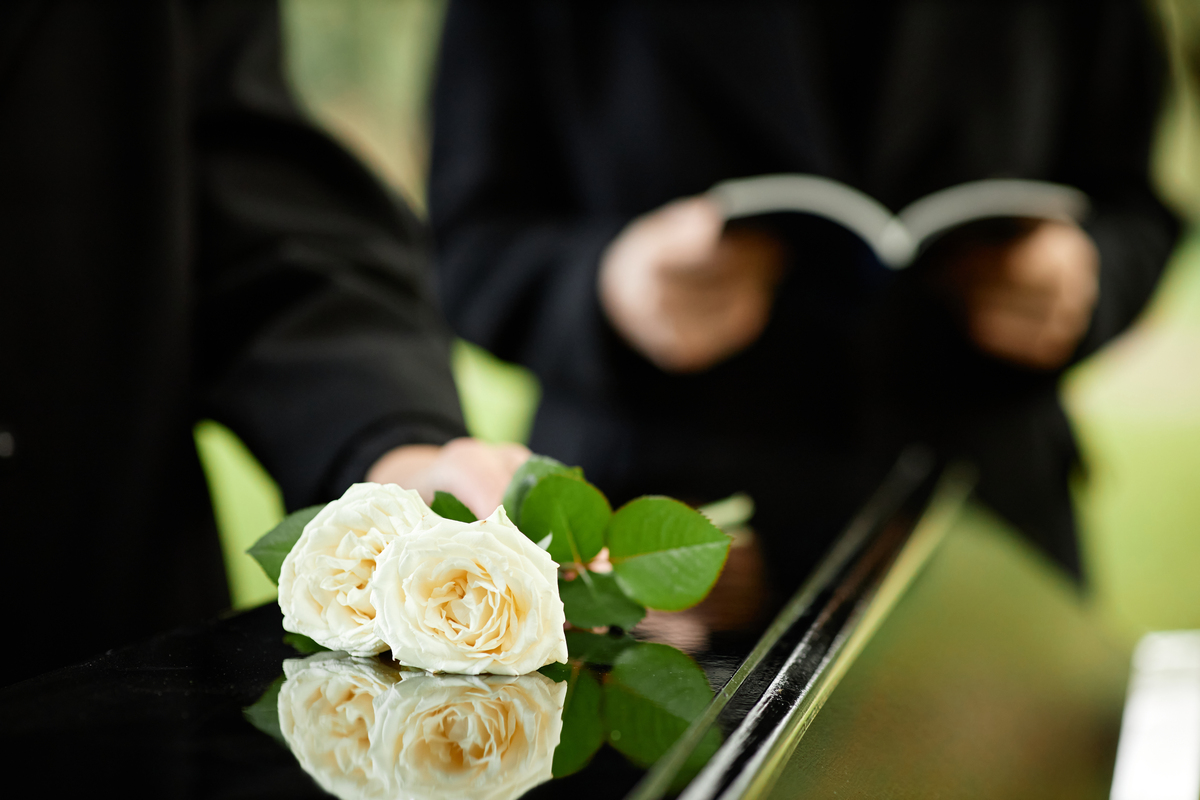The foundation of Christian faith is a belief in Jesus Christ and God’s unique gift of eternal life after death. In Biblical times, the dead were entombed in the sides of rocky cliffs or buried in fields that served as cemeteries. That’s usually not the case today. However, some Christians—the majority of which are Catholics and Protestants—do still hold true to some time-honored practices.
Get our free Personal Planning Guide
Making final plans is one of the most thoughtful gifts you can give your loved ones. Get started with our free Personal Planning Guide to document your legacy, record memorial plans and more.
Christian burial traditions may vary by denomination.
The Christian faith includes many different denominations, and each may do things a bit differently. For example, a service for a member of the Methodist church may be dignified and solemn, while a service for a member of a Pentecostal church may be much more lively. An evangelical Christian funeral service may include an altar call, during which followers of Christ are invited to gather at the front of the room as a demonstration of their commitment to the Lord. A funeral for a Presbyterian would likely not include such an element. A Catholic or Episcopal funeral might include the Eucharist; a Baptist funeral probably would not. A good funeral director will respect and honor the nuances of your faith when helping plan a funeral and burial.
No matter what denomination a family follows, however, most Christian funerals are led by a member of the clergy and include readings from the Bible, prayers, songs and hymns.
 A traditional Christian burial usually includes a graveside service.
A traditional Christian burial usually includes a graveside service.
A traditional Christian funeral is typically held at a funeral home or a church. Afterward, a funeral procession to the cemetery—by foot if the cemetery is very nearby or by car if it's within driving distance—takes mourners to a short graveside service. At the cemetery, a member of the clergy speaks and leads family and friends in a prayer.
If the loved one will be buried in the ground, family and friends may lay flowers on the casket or toss a handful of dirt into the grave as a farewell gesture. If the loved one has been cremated, there may still be a ground burial of the urn. A Christian may also be entombed in a mausoleum or memorialized in a columbarium or cremation niche. Ashes may also be scattered or kept at home, depending on the canons or doctrines of the specific Christian denomination. As times have changed, so have the choices Christian families make about memorialization.
Your family, your religious leader and your funeral director can help you decide what's best for you or your loved one.
There are a few common misconceptions about Christian burial.
There are many religions and many religious traditions. There are at least as many points of confusion. Two of the most common have to do with the cleansing of a loved one's body after death and the direction a loved one should face when laid to rest.
It's a myth that the Bible asks for Christians to be buried facing east.
It's believed that Christians adopted a practice of burying their dead facing east because there are scriptures that state that when Jesus returns his will approach from the east. By being buried with their feet pointed at the eastern horizon, Christians could be ready to greet their savior face-to-face at the rapture.
However, the Bible does not command God's followers to be buried facing east. What's more, according to scripture, no physical bodies will be resurrected—only new, spiritual bodies. The belief of a physical resurrection still persists for many, however, as does the practice of being buried facing east.
The Bible does not call for the cleansing of a loved one's body before burial.
Certain faiths, including the Jewish and Muslim faiths, call for a ritual cleansing of a loved one's body before burial. The Bible does not require this practice for Christians, however. In fact, the Old Testament discourages contact with the deceased.
Most Christians who will be buried or entombed in a casket are embalmed before the funeral service. If a family chooses a funeral before a cremation, they may also choose to have their loved one embalmed before the service.
Let us help you plan a Christian burial for yourself or a loved one.
Dignity Memorial® professionals are experts in Christian funeral and burial traditions. We take the time to get to know you and your family and guide you through the process. Here are some steps to take when making plans for yourself or someone you love:
- Reach out to a Dignity Memorial provider.
- Contact your clergy or other religious leaders to discuss the traditions common to your faith.
- Decide which religious rites are important to you and your family and whether there are any you’d prefer not to include.
- Choose your favorite prayers, scriptures, hymns and songs to be shared during the service.
- Select tokens of your faith to be included in a display at the service or placed in the casket. Common items include a cross, rosary or Bible.